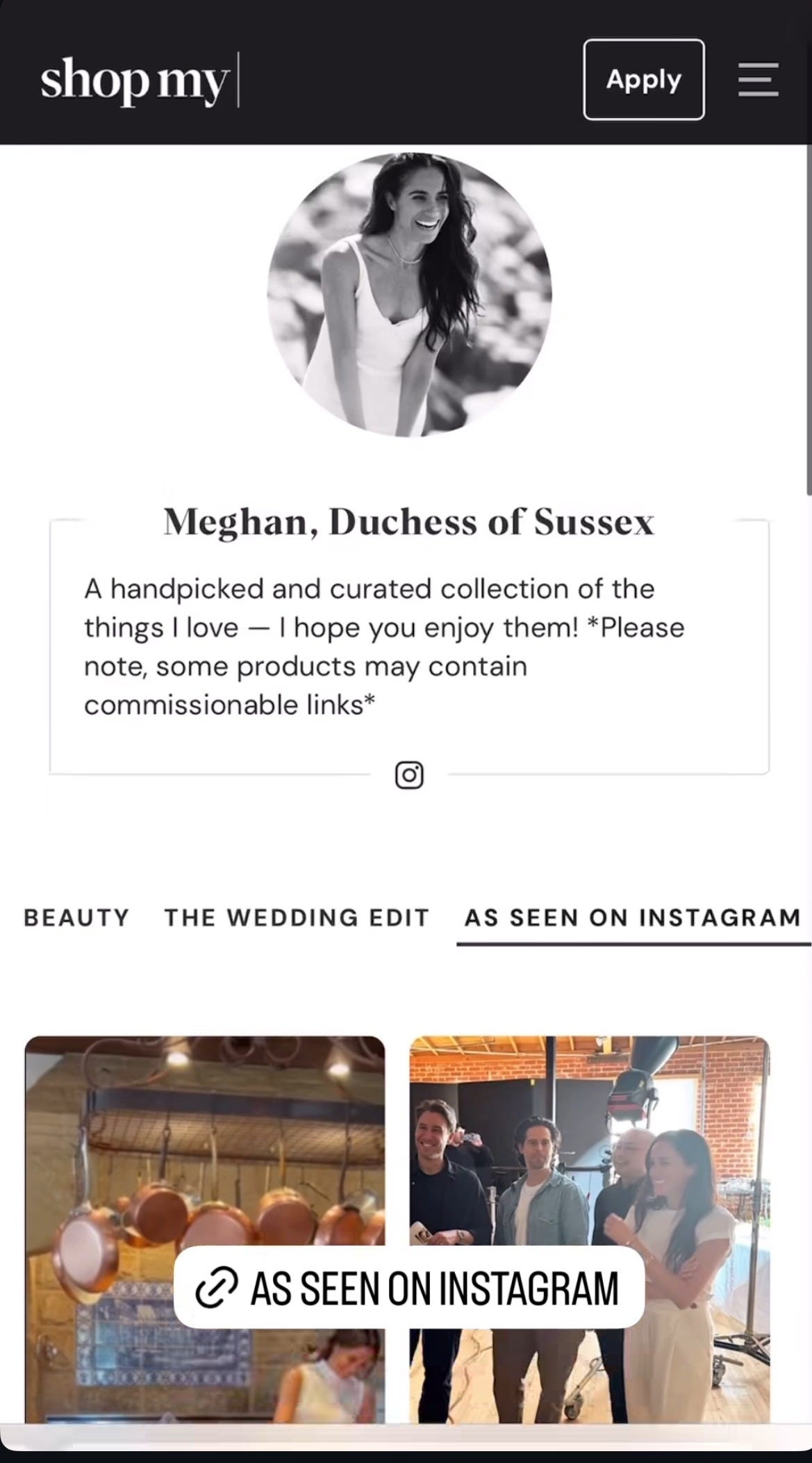If you’re new here, welcome to Delivered, a newsletter covering the intersection of content & commerce. If you haven’t already, subscribe to get all posts straight to your inbox.
Welcome back to another Delivered news round-up, where I share headlines from the content & commerce space that I think are worth discussing and sending to your colleagues.
Obviously, I have to start with tariff talk.
It feels silly to not talk about the tariffs in a newsletter about commerce, but everything is changing so quickly that many of the stories I had initially planned to include in today’s send are already stale news. No one knows what’s going on! I personally have learned a lot in the last week—all the concepts from my college economics classes are finally clicking. Below are two headlines from this week that are still relevant:
Amazon Is Already Changing Its Ultra-Cheap Temu Copycat (The Verge): Haul is an Amazon feature designed to offer users unbranded products for $20 or less, shipped directly from manufacturers in China. According to the Verge, it’s now featuring familiar American brands—Under Armour, Vera Bradley, The Children’s Place—shipped from Amazon’s domestic warehouses, and many of the products are no longer under $20. The shift is in response to the tariffs, and more specifically, the upcoming end of the de minimis exemption that has allowed packages valued under $800 to enter the US duty-free. Amazon isn’t shy about killing products that don’t perform, so I think it’s safe to say Haul isn’t going to last through the summer.
Is Walmart More Recession-Proof Than Amazon? (WSJ): This is a link to WSJ’s live blog from Tuesday, so it’s slightly stale but raises some interesting points about Amazon vs. Walmart. Walmart sells more essential items in-person, like groceries, putting it in a better position during economic downturns. The article also speculated if people will shop more in-person than online in a recession—which is a good thought exercise. What do we think? The last recession was before we all were dependent on two-day shipping, and we didn’t have much of a choice during the uncertain economic times of Covid.
Now onto more fun stuff:
The big news in the influencer x affiliate space a few weeks ago was that Meghan Markle launched a ShopMy page and dropped a link to it on Instagram. I think it’s funny and smart. She’s shamelessly cashing in on her title by referring to herself as “Meghan, Duchess of Sussex” even though she no longer has royal duties, clearly trolling the Royal Family. Can you imagine what they think of affiliate marketing? How plebeian!
As mockable as it is, it’s a well-intentioned move from a business perspective because if there’s one thing she’s good at, it’s moving product. The Wall Street Journal recently reported on fashion brands that saw an influx in sales after Meghan wore their products on her Netflix show “With Love, Meghan,” and I know from my time in the commerce trenches that articles highlighting where to buy her looks are quick, easy revenue hits. Why shouldn’t Meghan get compensated for her influence? That said, I’m not sure a ShopMy link on Instagram is the most efficient way to do so, as the click-through rates are probably low and many of the products featured on her page lack context. The thing about Meghan Markle’s style (IMO) is that it’s painfully basic, and her selling power isn’t in simply recommending products, but in showing people how she wears and uses them. If she really wants to make her affiliate marketing endeavors worth the mockery (and make the Royals’ skin crawl), she should do more “As Seen On” posts with clips from her show or honestly, just start a newsletter. Lean in, Meghan!
QVC announced last week that it would start hosting 24/7 live shopping streams on TikTok. The company first launched on TikTok Shop in August 2024, but the new agreement will make an even wider assortment of the group’s brands and products available on TikTok. The experience will also feature original QVC and HSN live content created specifically for the social platform. QVC is pivoting hard to make itself relevant for young consumers. After a 6% YoY revenue drop in Q4 of last year, it brought in a new growth executive to focus on streaming, social, and other digital channels. In February, it announced plans to build a social content studio in its Pennsylvania headquarters. And last week, it announced that Oura Ring would be launching on the channel, a strategic push from Oura to reach its target female market but also a win for QVC as it rebrands itself as young and cool.
Someone finally wrote about Artipoppe’s marketing strategy. If you’re a millennial mom, you’ve definitely seen Artipoppe, the brand behind the status baby carrier that comes in high-end materials like cashmere and recognizable patterns like leopard print and tweed, on Instagram. I’m not going to lie, I bought myself a denim Artipoppe when I was pregnant and I love it. (My daughter still does; nothing motivates her to go to daycare like the thrill of riding in the carrier.) I’ve always been curious about the brand’s aggressive marketing strategy, which relies heavily on influencers (or, according to the CMO, those who have “pioneering behavior”) and a referral code program that's led to a competitive scene in Facebook groups and on Poshmark.
Bloomberg interviewed 25 independent publishers on how Google’s AI-generated answers have caused their website traffic to plummet. Google publicly denies that its AI answers roll-out has affected websites’ traffic, which is ludicrous. How many times have you personally searched for something on Google in the last few months, got what you needed from the AI overview, and didn’t click to a website? Many of the publishers interviewed had to shut down their sites, which actually isn’t great for Google, since it relies on those sites to power its AI. The more data, the better.
The article touches on some of the concepts I wrote about when analyzing the rise of Reddit in search results, like Google’s long-held emphasis on E-E-A-T (experience, expertise, authoritativeness, and trustworthiness). Individual publishers, like a running coach with a blog about running shoes, stick to E-E-A-T guidelines often more authentically than large media brands, and yet they feel like they’re being punished by Google for “writing for search.” Between small publishers getting dinged for adhering too closely to E-E-A-T, big publishers getting dinged for using freelancers, and Google trying to push both down the page with its AI answers, search is in a sad place right now.
That’s all for today. Here are some past posts you may have missed:







